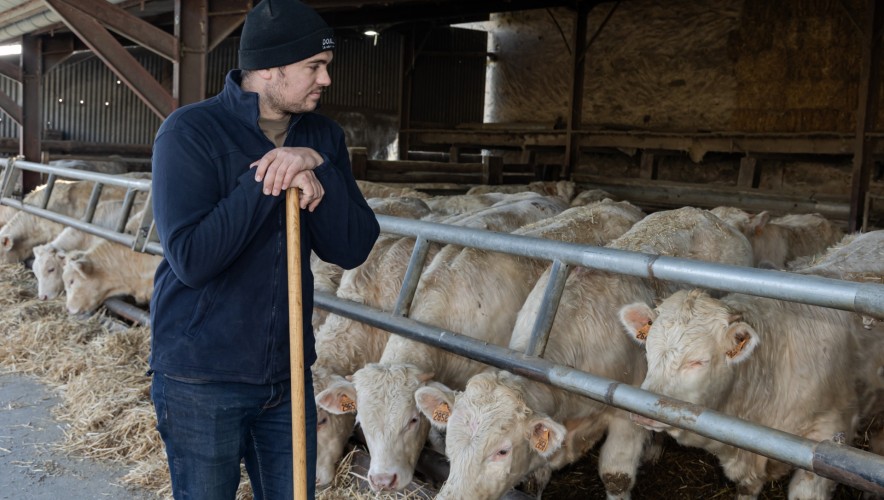Serving the Earth: from a purpose to a cause for action : Agricultural endurance & responsible practices
Author
Jean-Philippe Puig
CEO of Avril SCA
At Avril, we’re committed to supporting French farms as they transition toward more sustainable models, while also taking action to achieve decarbonization.
By promoting and developing solutions with low greenhouse gas emissions – and helping to ensure they generate financial value for farmers – Avril supports responsible farming practices and their long-term application for the benefit of consumers, food sovereignty and the planet.
Agriculture: an effective lever in the fight against climate change
One of my strongest-held beliefs is that agriculture is a source of solutions. Farming has the capacity to capture CO2 and to store it in soils, through responsible practices that aim (for example) to limit plowing, plant cover crops between different crop varieties, limit the use of inputs by planting hardier seeds, etc. All in all, there are multiple levers available.
Alongside its farmers, Avril is committed to the production of low-carbon rapeseed, via long-term approaches that offer more profitable market outlets for farmers. Such is the case with OleoZE, which in five years has enabled 700,000 metric tons of sustainable rapeseed to be harvested, with an average bonus for farmers of €29 / metric ton in 2023 – i.e., roughly €20 million poured back into upstream agriculture.
This is also the objective behind Lesieur’s “Committed Oils” initiative, launched in 2023, which encourages farmers to follow specifications that prioritize low-consumption crop varieties, and which respect biodiversity and the environment. Over 500 farmers have now partnered with the scheme in France, and 42,000 metric tons of seeds have been harvested for the Cœur de tournesol and Fleur de colza ranges.
Taking action to decarbonize cattle farming
Cattle farming is currently the highest emitter of greenhouse gas emissions, due notably to the enteric fermentation that occurs in ruminants, which emits methane gas. At Avril, we know that animal nutrition has a key role to play in keeping French livestock sustainable, and are making the decarbonization of cattle farms a priority.
We offer farmers solutions for the responsible supply of soy and colza oilseed meal, as well as innovations provided by the nutrition experts at MiXscience.
For the Group, this is also a question of supporting the long-term financial viability of French livestock farming, through financial aid plans and efforts to improve cattle farms’ profitability and capacity to showcase their sustainable practices to consumers.
Accelerating the decarbonization of our activities
Our teams have also mobilized to decarbonize our activities. Since 2021, we’ve been working toward an ambitious carbon trajectory, which in 2023 was validated by the Science Based Targets initiative (SBTi) and which aims to achieve a 30% reduction in our greenhouse gas emissions by 2030 (compared to reference year 2019) in Scopes 1&2.
In order to achieve this, we’re acting to improve energy efficiency and sobriety at our industrial sites, by reducing energy consumption, replacing inefficient equipment and combating waste.
We are also continuing to develop our strategy for the use of biomass produced in our factories via specially adapted boilers, in order to produce our own energy using a circular approach. For certain business units, such as Lesieur Cristal in Morocco, we are investing in the development of solar power. These initiatives are already bearing fruit and have been lauded by certification bodies such as the Carbon Disclosure Project, which in 2023 awarded a B grade for the Group as a whole.
The Avril teams are generating solutions for sustainable and enduring agriculture, and I encourage you to read all about them in our latest Integrated Annual Report.
